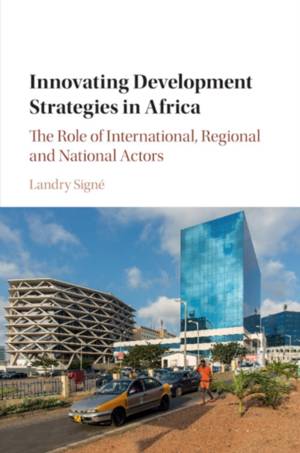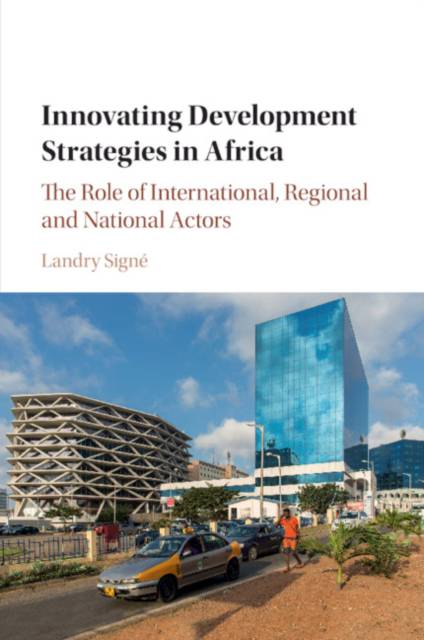
Je cadeautjes zeker op tijd in huis hebben voor de feestdagen? Kom langs in onze winkels en vind het perfecte geschenk!
- Afhalen na 1 uur in een winkel met voorraad
- Gratis thuislevering in België vanaf € 30
- Ruim aanbod met 7 miljoen producten
Je cadeautjes zeker op tijd in huis hebben voor de feestdagen? Kom langs in onze winkels en vind het perfecte geschenk!
- Afhalen na 1 uur in een winkel met voorraad
- Gratis thuislevering in België vanaf € 30
- Ruim aanbod met 7 miljoen producten
Zoeken
Innovating Development Strategies in Africa
The Role of International, Regional and National Actors
Landry Signé
Paperback | Engels
€ 64,95
+ 129 punten
Uitvoering
Omschrijving
During the second half of the twentieth century, African states shifted away from state-led development strategies, and are now moving towards a strategy of regional economic integration. In this book, Landry Signé explores the key drivers of African policy and economic transformation, proposing a preeminent explanation of policy innovations in Africa through the examination of postcolonial strategies for economic development. Scholars and practitioners in fields as varied as development studies, political science and public policy, economics, sociology and African studies will benefit from Signé's unprecedented comparative analysis, including detailed cases from the often understudied Francophone Africa. First studying why, how and when institutional or policy change occurs in Africa, Signé explores the role of international, regional and national actors in making African economic development strategies from 1960 to date, highlighting the economic transformations of the twenty-first century.
Specificaties
Betrokkenen
- Auteur(s):
- Uitgeverij:
Inhoud
- Aantal bladzijden:
- 232
- Taal:
- Engels
Eigenschappen
- Productcode (EAN):
- 9781316625620
- Verschijningsdatum:
- 13/02/2020
- Uitvoering:
- Paperback
- Formaat:
- Trade paperback (VS)
- Afmetingen:
- 152 mm x 229 mm
- Gewicht:
- 317 g

Alleen bij Standaard Boekhandel
+ 129 punten op je klantenkaart van Standaard Boekhandel
Beoordelingen
We publiceren alleen reviews die voldoen aan de voorwaarden voor reviews. Bekijk onze voorwaarden voor reviews.









